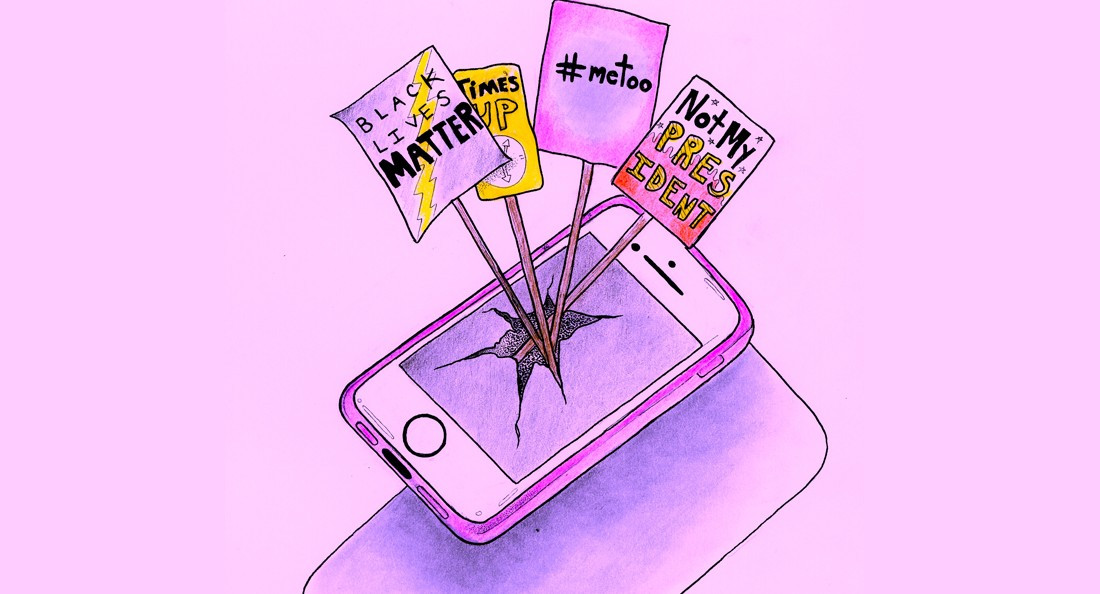Screen-Based Activism
Justice in the digital sphere
We live in an age where our voices can be heard by the masses with just a few clicks of a button.
Social media activism – often referred to as hashtag activism – has been a driving force in shedding light on injustices and perspectives that may otherwise go unseen and unheard by the general public. But just how effective is it?
Earlier this month, Cyntoia Brown, a victim of sex trafficking originally given a life sentence for the murder of her perpetrator in the United States, was granted clemency. While social media discourse undoubtedly had an effect on the outcomes of this case, how much credit can be given to the so-called hashtag activism that surrounded it?
Twitter models democracy in a somewhat obscure way. Virtually anyone has the ability to voice their opinions, but just as in our own flawed system, some voices are always louder than others (key word: celebrities).
The vast majority of celebrities do not hold law degrees from Ivy League institutions to give them the conventional means of judicial credibility, but they do hold one thing above all to wield their power: a massive following. Rihanna directed the attention of her millions of fans toward Brown’s situation through an Instagram post. Kim Kardashian went as far as to connect her attorneys with Brown’s in hopes of helping her case.
Despite this, the outcome of Brown’s case wasn’t just a product of Kim K and Rihanna’s digital advocacy, or even the flood of #FreeCyntoiaBrown posts circling social media feeds.
Beyond the digital universe, Black Lives Matter activists tirelessly urged citizens to call Tennessee Governor Bill Haslam and advise that he grant Brown clemency. Following three issued voicemail scripts, over 140,000 petitioned signatures and a massive amount of telephone messages later, their demands were met.
Critics of hashtag activism often argue that using social media as a means of “activism” potentially causes users to feel they’re making more of a difference than they actually are. Activism through social media is often looked at as all talk but no action. Millions of hashtags pertaining to social justice circle the internet every day, but what percentage of people are actually taking direct action? I’d speculate that it’s not too many.
While it cannot be denied that social media plays a major role in fostering dialogue and bringing awareness in a technologically connected world, we musn’t overlook more “traditional” forms of activism and assume that all can be done behind the comforts of our phone screens.
Canadian women did not gain the right to vote by staying at home. They organized mock parliaments, created petitions and, most importantly, showed up. Similarly, the profoundness of the Women’s Marches back in early 2017 came not from the number of hashtags and retweets, but through the solidarity shown in the streets lined with pink hats and hand-painted bristol boards all over the world.
The power of organizers and activists still resonates, even in a digital age. Real change, after all, takes place in the world outside our social media feeds.
Cierra Bettens is a collector of stories on Treaty One territory.
Published in Volume 73, Number 14 of The Uniter (January 17, 2019)







